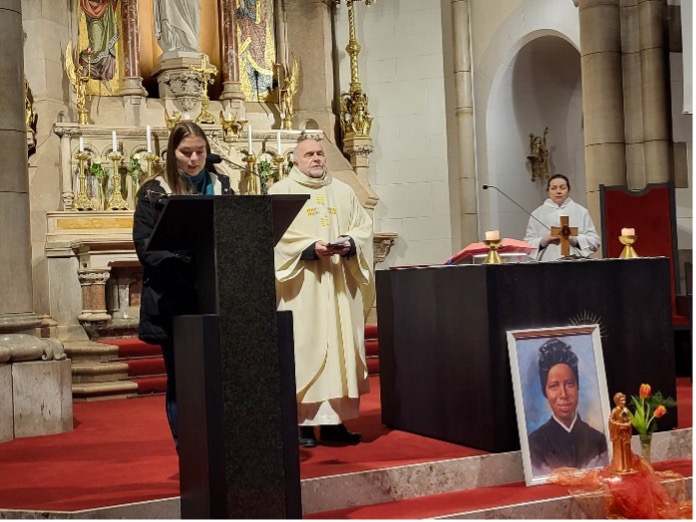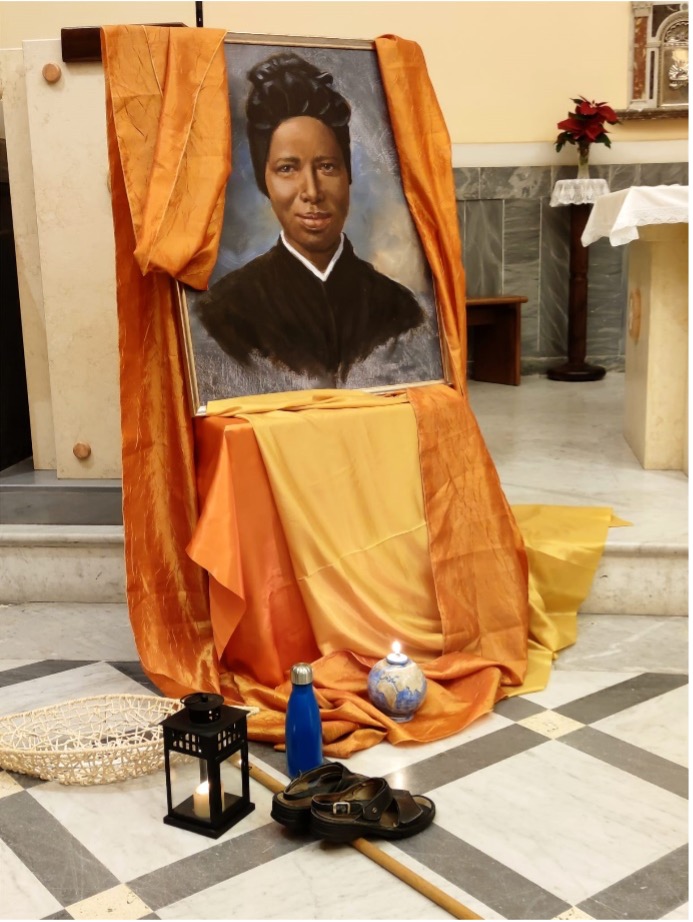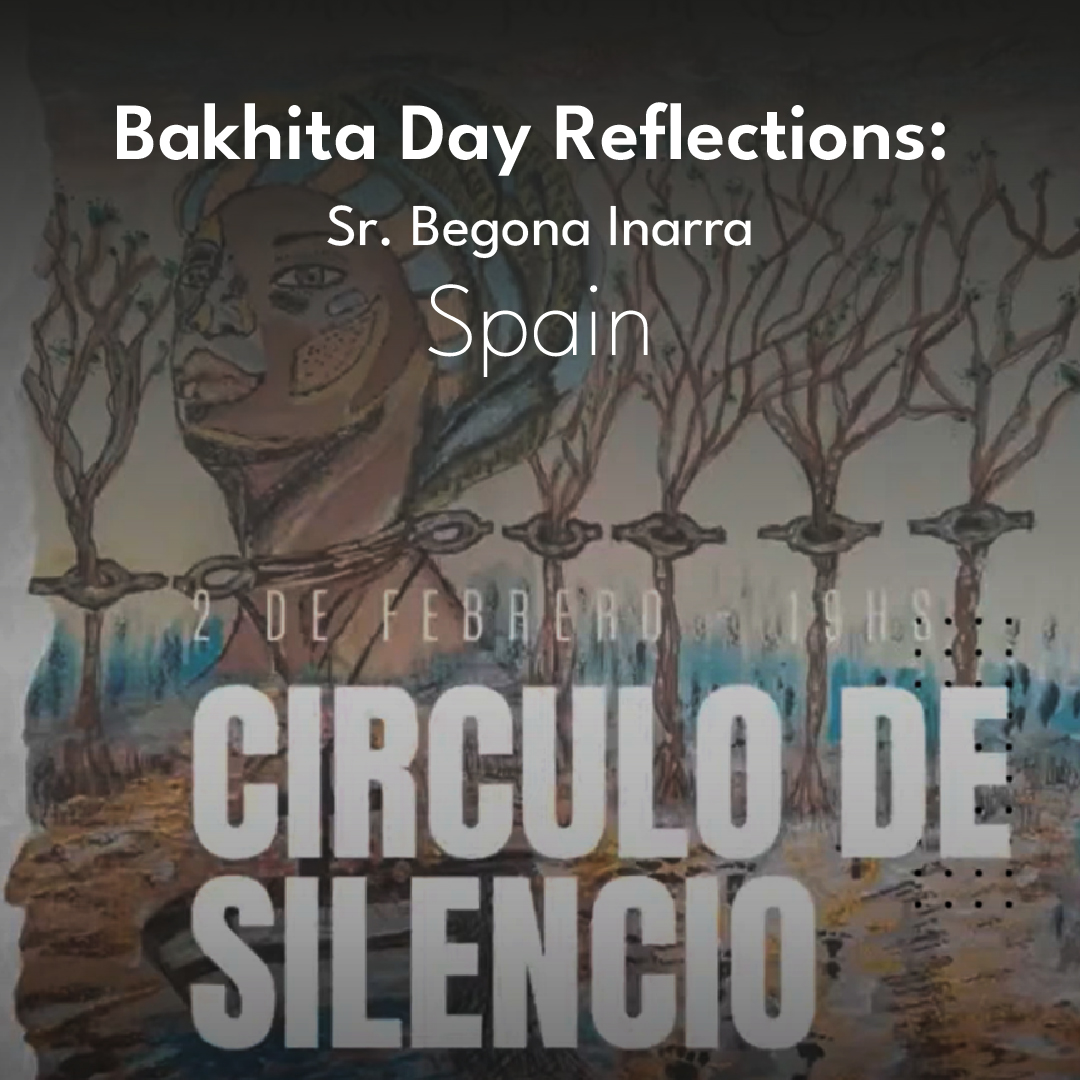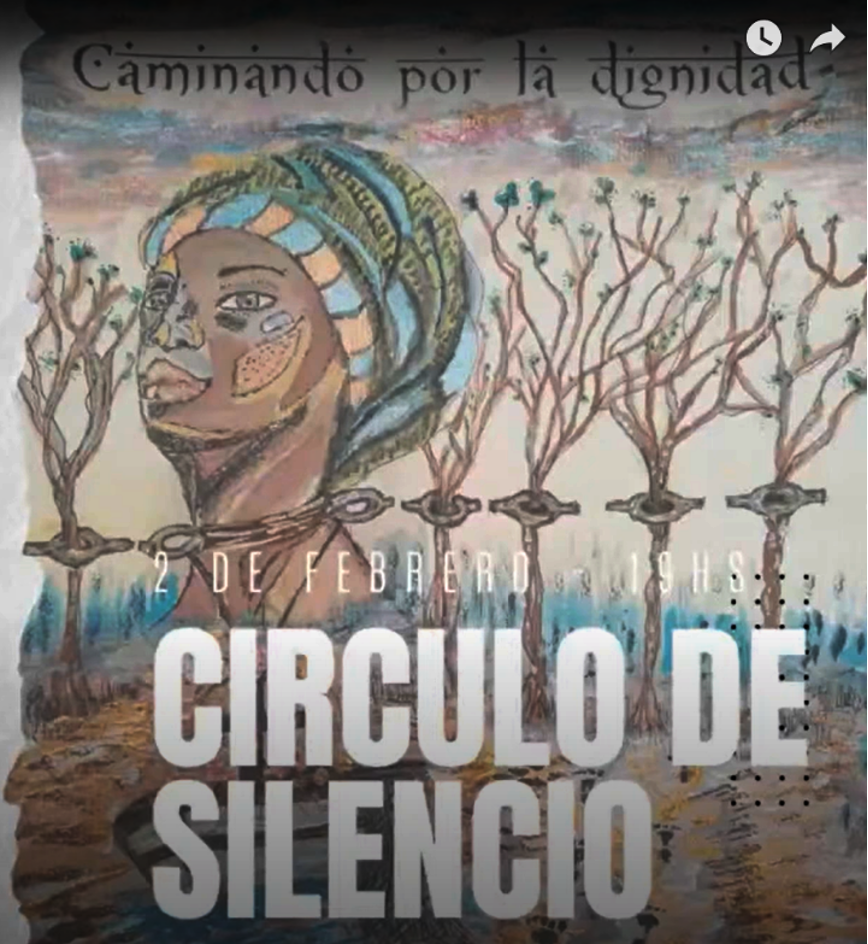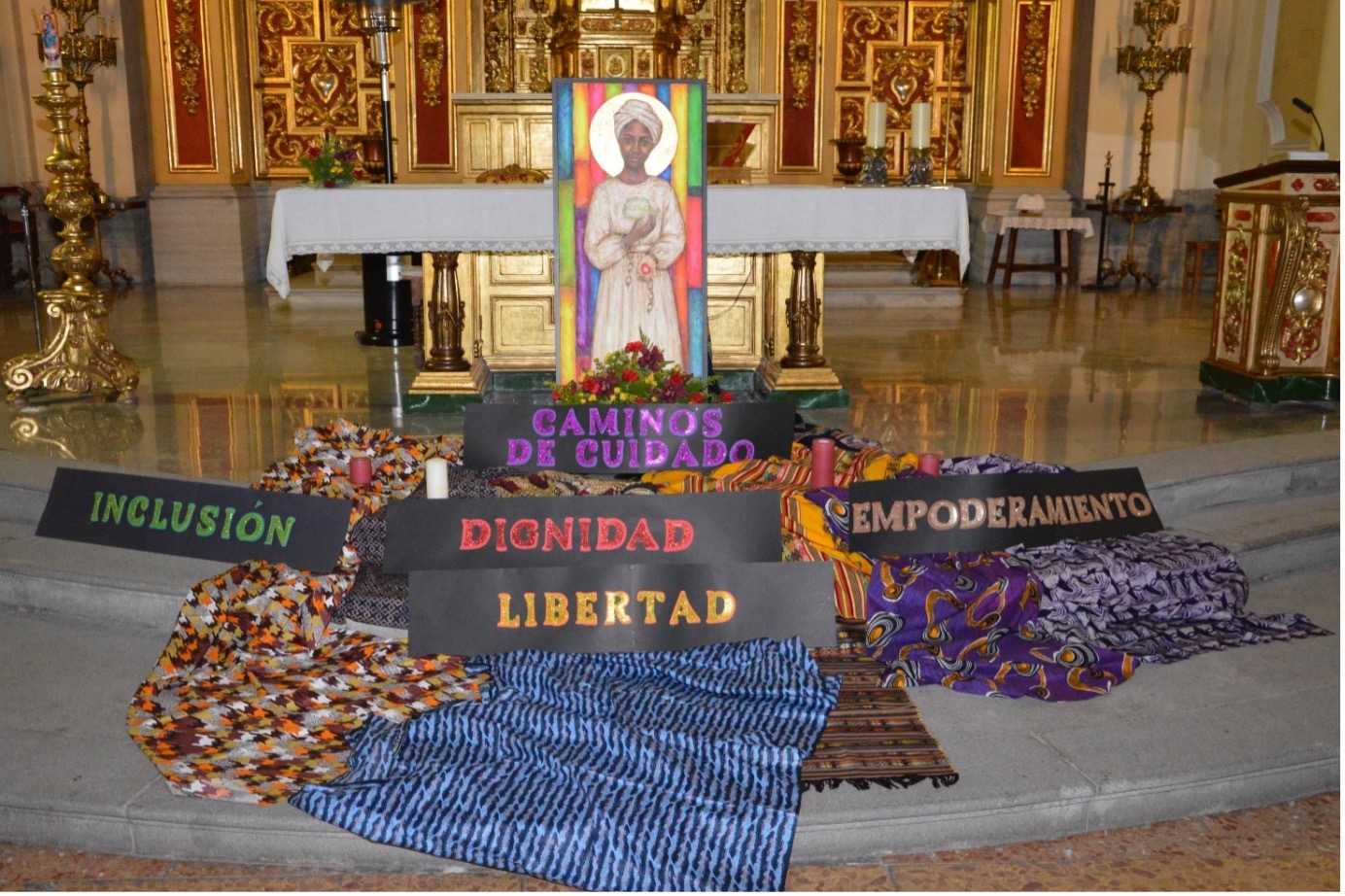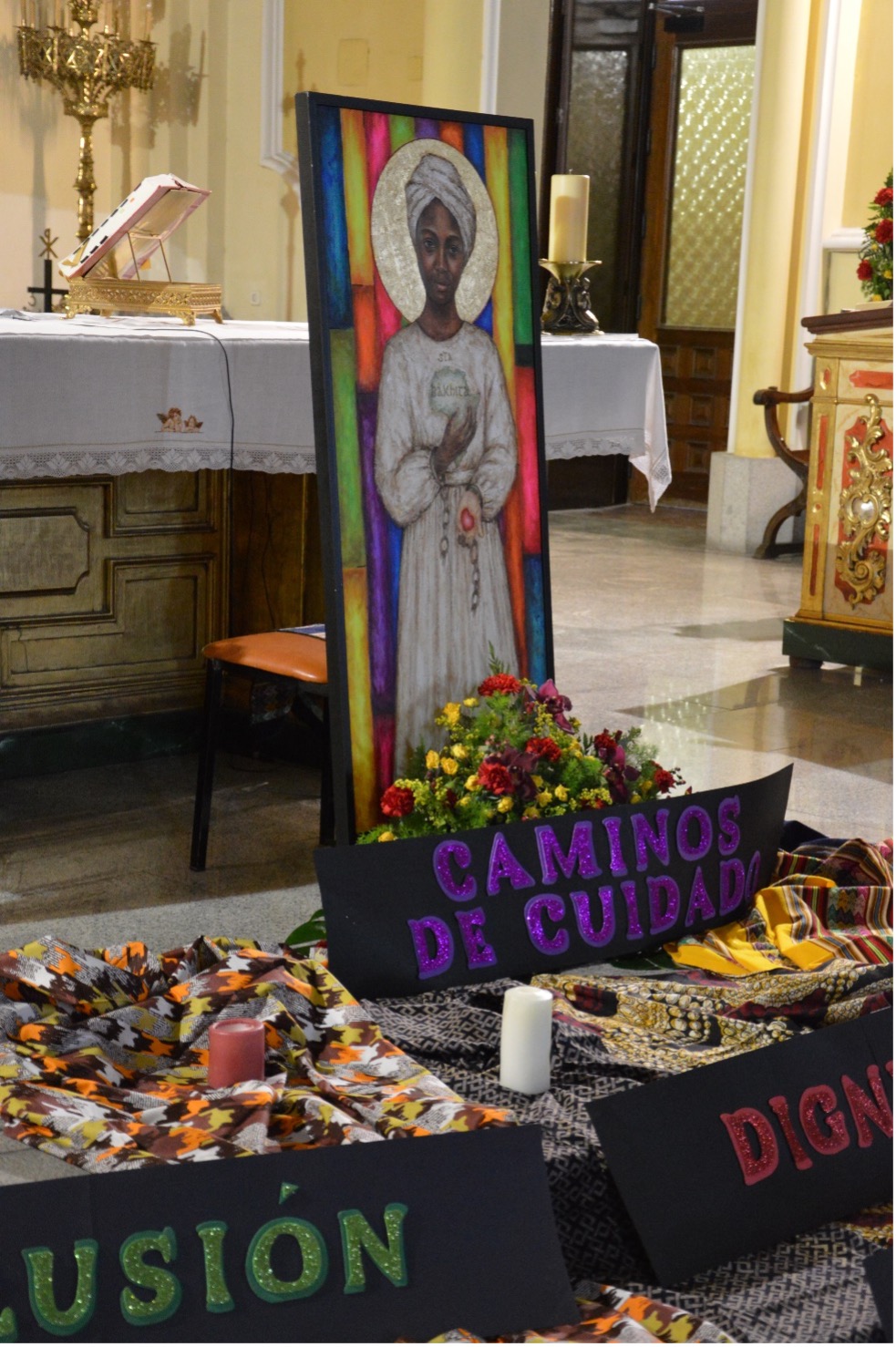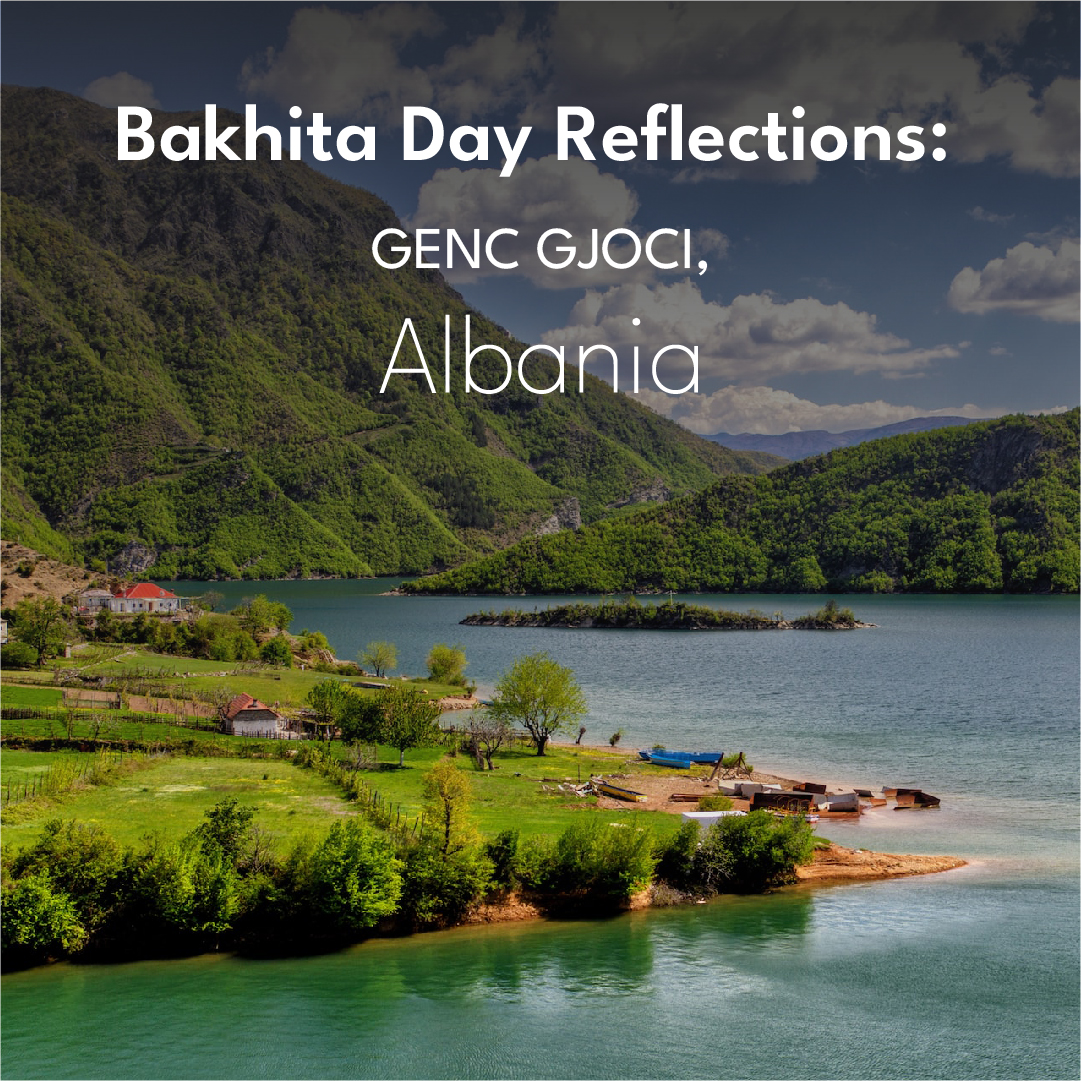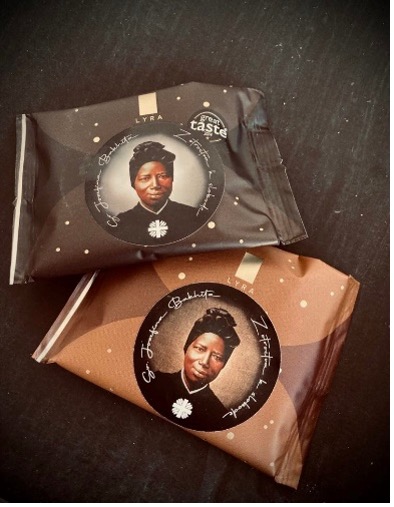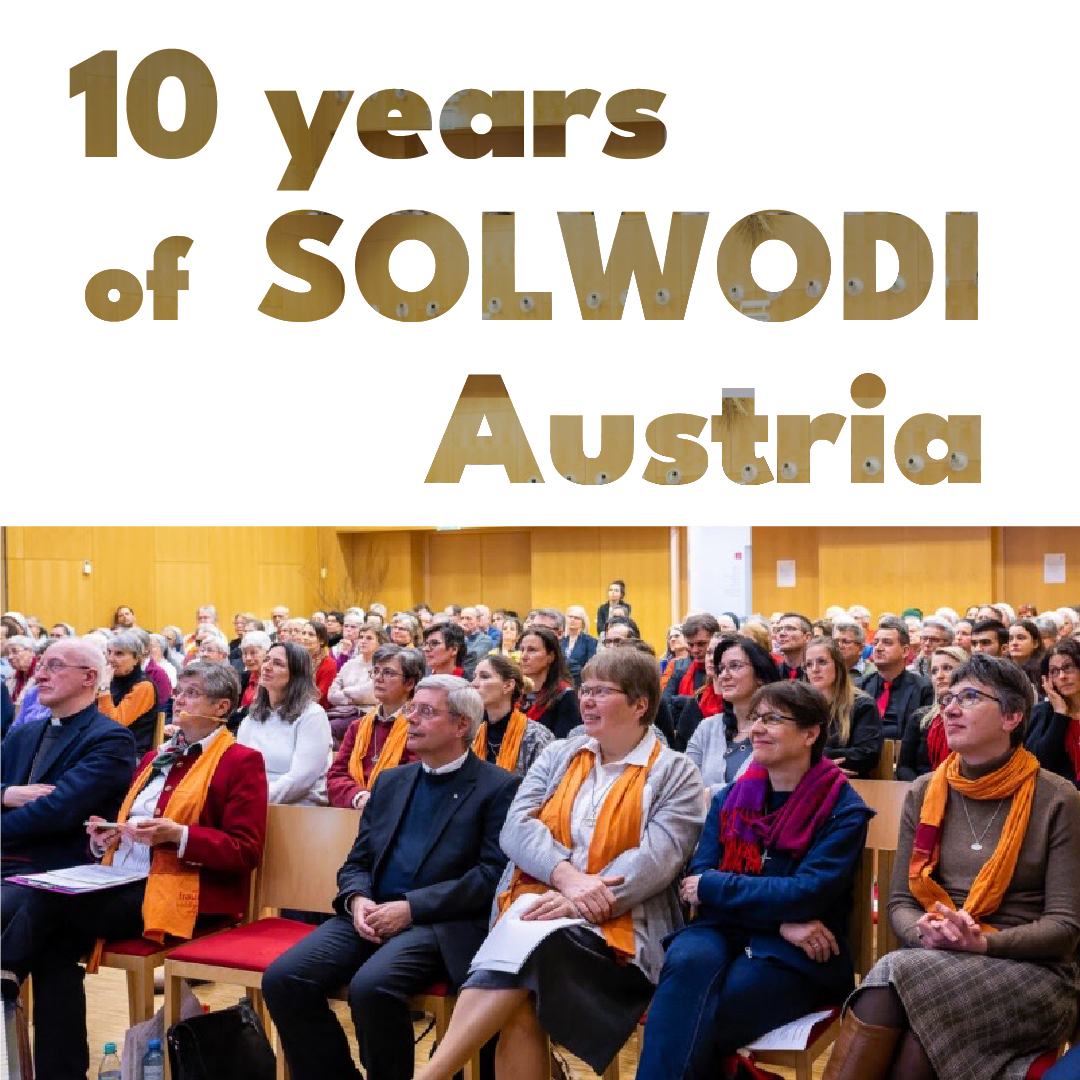Ten years of SOLWODI AUSTRIA means ten years of commitment in the fight against human trafficking, sexual exploitation and forced prostitution.
On 8 February 2023, the “World Day of Prayer against Human Trafficking” introduced by Pope Francis, the anniversary celebration took place at the Cardinal König Haus in the 13th district of Vienna.
The registered association SOLWODI (Solidarity with women in distress) AUSTRIA is sustained by six women’s congregations and is financed mainly by religious congregations and private donations. For those involved, the aim of the celebration was mainly to make the participants realize the distress and desperation of those affected. They wanted to show the unbelievable extent to which this crime is present in our society, and at the same time accepted and/or ignored.
Sr Patricia Erber, chairwoman and „founding initiator“ of the association SOLWODI AUSTRIA, summed up its success story in concrete figures: During these ten years, a total of 450 women could be counseled by SOLWODI staff members. 93 women and 51 children found a place and comprehensive care in a shelter in Vienna. Another 19 women and eleven children found a place in a shelter in Innsbruck which existed for a short period of time. After moving out of the shelter, the women continue to receive aftercare in a separate counselling centre set up for this purpose. Two thirds of the women cared for in the SOLWODI shelters were victims of sexual exploitation or trafficked persons.
The “initial spark” came from the Italian Sr. Eugenia Bonetti who, as a speaker at an event in Rome in 2001, reported on the situation of Nigerian women who are sold to Europe to be exploited in prostitution. She described the approach of the traffickers and the great distress of the women. And she urged her listeners to stand up as women religious for these women who have no voice. This prompted Sr Patricia to take a closer look at the issue, and so the “Project Group of Church Organisations against Human Trafficking” was founded in July 2010, and a smaller project group in April 2011, consisting of six women religious from six different religious congregations, which then founded SOLWODI AUSTRIA in 2012. During the meetings, the need for shelters for women and girls affected by human trafficking and of sexual exploitation became apparent (until then, there was only one single shelter for these women in the whole of Austria!)
Sr. Anna Mayrhofer, long-time manager of a SOLWODI-shelter in Germany, then took over the management of the shelter in Vienna. The women should stay there “for as short a time as possible, but as long as necessary”, says Sr Anna. Social workers and volunteers attend to the women and help them with all organisational matters – from going to the doctor to taking a German course, to finding an own flat that they can afford. The way back to a reasonably self-determined life is difficult, but it succeeds. – Two thirds of the women cared for in the SOLWODI shelters were victims of sexual exploitation or trafficking.
Sr. Maria Schlackl heads the initiative “Active against Human Trafficking – Active for Human Dignity in Upper Austria” [i.e. in one of the nine federal states of Austria]. Her main goal is to anchor the issue of “human trafficking” in public awareness. “It is important to raise awareness, and preventive awareness at that,” Sr. Maria is convinced. “Because we have to do everything we can to ensure that this happens to as few women and girls as possible.” – She is supported in this initiative by Fr. Hans Eidenberger, who asks ironically at the beginning of his talk: “”Prostitution is a women’s issue, isn’t it? Men have nothing to do with that, do they?” The answer is, of course, quite the opposite. Men in particular must be held responsible. The awareness of this, however, is completely lacking in society, he says. “Not ‘whore’ should be the dirty word, but ‘punter’,” says the Marianist Father. When he sees a sticker on a moped saying ‘My other ride is your daughter’, as he did on a walk the other day, he said it shows the mentality of many men who believe women can be ridden like a moped. “And we have to fight against that,” the religious advocated. It starts with the media. “Read it consciously once when an article reports on an incident in a brothel. It almost only talks about the woman. The perpetrator, the man, is hardly mentioned; he always remains in the dark.”
“We have to strive for a change in awareness,” says the Father. That is why the members of the initiative also give lectures in schools, in parishes, at events. Ultimately, he says, there is no need for men who protect women – there is a need for men who do not protect other men. And it needs men who act as role models and publicly say: “Real men don’t buy women!” As an efficient approach to solving the problem, Fr Hans Eidenberger pleaded for a Europe-wide legislation that would tackle the crime of “human trafficking” more decisively, namely the “Nordic law model”. It does not punish the prostitute, but the sex buyer. “As long as prostitution is legal, there will be demand and thus supply,” he said.
Photos: Copywright Martin Eder
Zehn Jahre SOLWODI ÖSTERREICH
Zehn Jahre SOLWODI ÖSTERREICH bedeuten zehn Jahre Engagement im Kampf gegen Menschenhandel, sexuelle Ausbeutung und Zwangsprostitution. Am 8. Februar 2023, dem von Papst Franziskus eingeführten “Weltgebetstag gegen Menschenhandel”, fand die Jubiläumsfeier im Kardinal König Haus in Wien XIII statt.
Der Verein SOLWODI (Solidarity with women in distress) ÖSTERREICH wird von sechs Frauenorden getragen und finanziert sich hauptsächlich von Ordensgemeinschaften und von privaten Spenden. Bei der Feier ging es den Verantwortlichen darum, den Teilnehmer:innen die Not und die Verzweiflung der Betroffenen begreifbar zu machen. Es ging ihnen darum, aufzuzeigen, in welchem unglaublichen Ausmaß dieses Verbrechen in unserer Gesellschaft präsent ist und gleichzeitig akzeptiert und/oder ignoriert wird.
Sr. Patricia Erber, Obfrau und Gründungsinitiatorin des Vereins SOLWODI ÖSTERREICH , brachte die Erfolgsgeschichte des Vereins in konkreten Zahlen auf den Punkt: Im Zeitraum von zehn Jahren konnten insgesamt 450 Frauen im Rahmen einer Kontaktaufnahme durch Mitarbeiterinnen von SOLWODI beraten werden. 93 Frauen und 51 Kinder fanden Platz und umfassende Betreuung in einer Schutzwohnung in Wien. Weitere 19 Frauen und elf Kinder in einer für kurze Zeit bestehenden Schutzeinrichtungen in Innsbruck. Nach dem Auszug aus der Schutzwohnung erhalten die Frauen weiterhin in einer eigenen dafür eingerichteten Beratungsstelle nachsorgende Betreuung. Zwei Drittel der in den SOLWODI-Schutzwohnungen betreuten Frauen waren Opfer von sexueller Ausbeutung oder Betroffene von Menschenhandel.
Die „Initialzündung“ kam von der italienischen Ordensfrau Sr. Eugenia Bonetti, die 2001 als Referentin einer Veranstaltung in Rom über die Situation von nigerianischen Frauen berichtete, die nach Europa verkauft werden, um sie in der Prostitution auszubeuten. Sie schilderte das Vorgehen der Menschenhändler und die große Not der Frauen. Und sie forderte ihre Zuhörerinnen auf, sich als Ordensfrauen für diese Frauen, die keine Stimme haben, einzusetzen. Das veranlasste Sr. Patricia, sich näher mit dem Thema auseinanderzusetzen, und so kam es im Juli 2010 zur Gründung der „Projektgruppe Kirchlicher Organisationen gegen Menschenhandel“, und einer kleineren Projektgruppe im April 2011, bestehend aus sechs Ordensfrauen aus sechs verschiedenen Ordensgemeinschaften, die dann im Jahr 2012 SOLWODI ÖSTERREICH gründeten. Im Rahmen der Treffen zeigte sich der Bedarf nach Schutzeinrichtungen für Frauen und Mädchen, die von Menschenhandel und in Folge von sexueller Ausbeutung betroffen waren (bis dahin gab es nur eine einzige Schutzeinrichtung für diese Frauen in ganz Österreich!).
Sr. Anna Mayrhofer, langjährige Leiterin einer SOLWODI-Schutzwohnung in Deutschland hat dann die Leitung der Schutzwohnung in Wien übernommen. Da sollen die Frauen „so kurz wie möglich, aber so lange wie notwendig“ bleiben, so Sr. Anna. Sozialarbeiterinnen und freiwillige Mitarbeiterinnen betreuen die Frauen und helfen ihnen bei allen organisatorischen Dingen – vom Arztbesuch über den Deutschkurs bis zum Finden einer eigenen Wohnung, die sie sich auch leisten können. Der Weg zurück in ein halbwegs selbstbestimmtes Leben ist schwierig, aber er gelingt. – Zwei Drittel der in den SOLWODI-Schutzwohnungen betreuten Frauen waren Opfer von sexueller Ausbeutung oder Betroffene von Menschenhandel.
Sr. Maria Schlackl leitet die Initiative „Aktiv gegen Menschenhandel – Aktiv für Menschenwürde in OÖ“ [d.h. in einem der neun Bundesländer Österreichs]. Sie hat sich vor allem das Ziel gesetzt, die Problematik „Menschenhandel“ im Bewusstsein der Öffentlichkeit zu verankern. „Wichtig ist die Bewusstseinsbildung, und zwar die präventive Bewusstseinsbildung“, zeigt sich Sr. Maria überzeugt. „Denn wir müssen alles daransetzen, dass das möglichst wenigen Frauen und Mädchen widerfährt.“ – In dieser Initiative wird sie unterstützt von P. Hans Eidenberger, der zu Beginn seines Vortrags ironisch fragt: „„Prostitution ist ein Frauenthema, oder? Damit haben Männern nichts zu tun, oder?“ Die Antwort lautet natürlich: Ganz im Gegenteil. Gerade die Männer müssen in Verantwortung genommen werden. Das Bewusstsein dafür fehle jedoch völlig in der Gesellschaft. „Nicht ‚Hure‘ sollte das Schimpfwort sein, sondern ‚Freier‘“, so der Marianist. Wenn er wie neulich bei einem Spaziergang einen Aufkleber auf einem Moped sieht, auf dem steht: ‚My other ride is your daughter‘, dann zeige es die Mentalität von vielen Männern, die glauben, Frauen könne man reiten wie ein Moped. „Und dagegen müssen wir vorgehen“, plädierte der Ordensmann. Das fängt schon bei den Medien an. „Lesen Sie das einmal bewusst durch, wenn ein Artikel über einen Zwischenfall in einem Bordell berichtet. Es ist fast nur von der Frau die Rede. Der Täter, der Mann, kommt kaum vor; der bleibt immer im Dunklen.“
„Wir müssen eine Bewusstseinsänderung anstreben.“, sagt der Ordensmann. Deshalb halten die Mitglieder der Initiative auch Vorträge in Schulen, in Pfarren, bei Veranstaltungen. Letztendlich brauche es keine Männer, die Frauen beschützen – es brauche Männer, die andere Männer nicht beschützen. Und es brauche Männer, die als Vorbilder wirken und öffentlich sagen: „Echte Männer kaufen keine Frauen!“ Als effizienten Lösungsansatz plädierte P. Hans Eidenberger für eine europaweite Gesetzgebung, die dem Delikt „Menschenhandel“ entschiedener entgegentrete, nämlich das „nordische Gesetzesmodell“. Es stellt nicht die Prostituierte unter Strafe, sondern den Sexkäufer. „So lange Prostitution legal ist, so lange wird es auch Nachfrage und damit Nachschub geben“, so der Ordensmann.
Photographs in this post – Copyright Martin Eder

.png)














